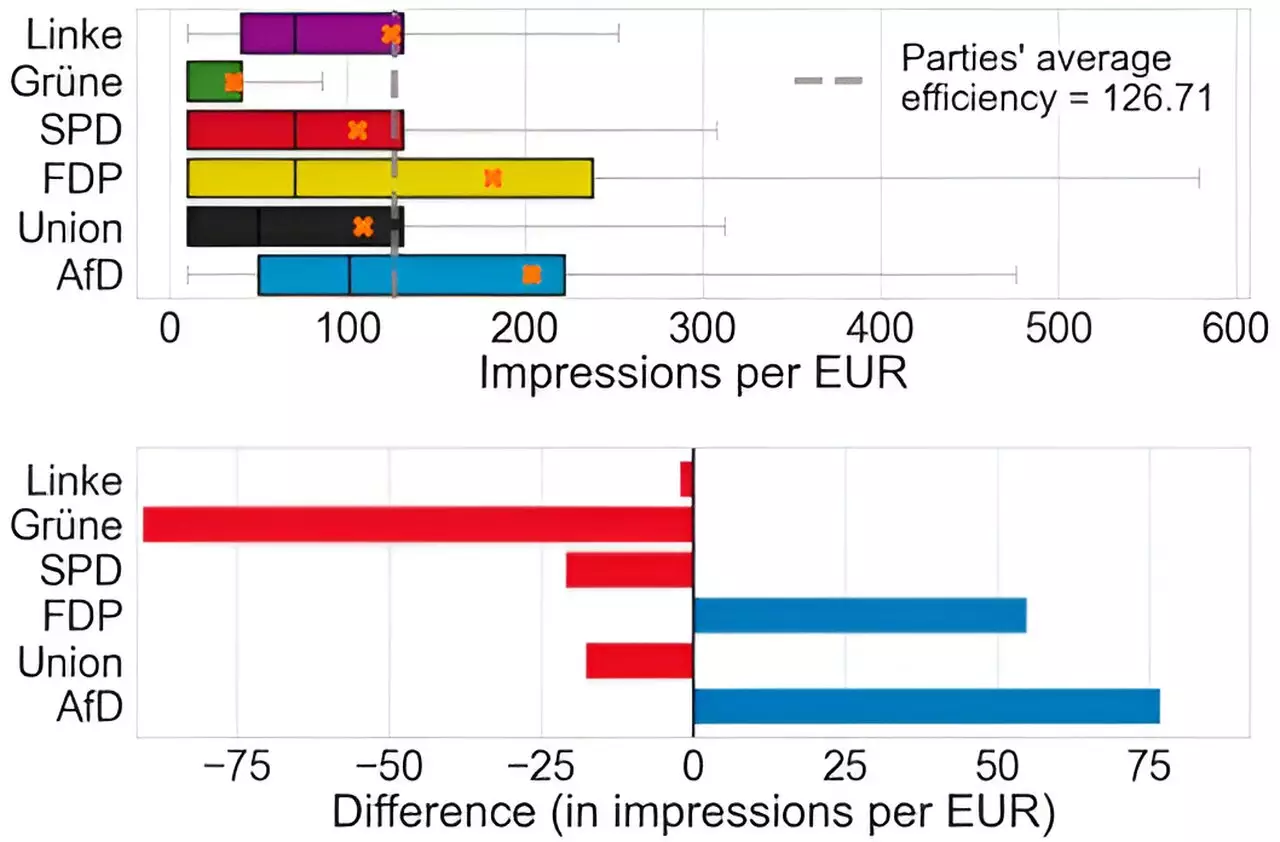A recent study conducted by the Politecnico di Milano, LMU—Ludwig Maximilians Universität of Munich, and the CENTAI institute of Turin shed light on the alarming influence of social media algorithms on politically sponsored content. The study, published in the journal PNAS Nexus, analyzed over 80,000 political ads on Facebook and Instagram leading up to the 2021 German federal elections. The research revealed that algorithms tend to favor more extremist groups, leading to significant discrepancies in the effectiveness and reach of these ads.
One of the striking findings of the study was the varying effectiveness of political ads across different parties. While over 70% of parties used user profiling in their ads, not all parties achieved equal results with the same budget. The far-right AfD emerged as the most effective party, with ads nearly six times more efficient than their competitors who had invested similarly. On the other end of the spectrum, the Greens were identified as the least cost-effective party.
Another concerning observation was the discrepancies between the targeted audience and the actual audience reached by political ads. Most parties tended to reach a younger audience than expected, except for the far-right, which attracted an older audience. Researchers hypothesized that algorithmic bias in ad distribution is based on known voter behavior and can potentially limit the political participation of disadvantaged groups.
The lead researcher, Francesco Pierri, emphasized the importance of transparency in political advertising on social media platforms. He expressed concerns about the lack of oversight and verification in ad distribution, stressing the need for greater transparency to ensure fair and unbiased elections. Pierri highlighted the detrimental impact of algorithmic biases on political competition and called for platforms to provide public access to political ads.
Challenges and Solutions
The study’s findings have sparked conversations about the regulation of targeted political advertising on social media. With growing public pressure and regulatory efforts like the Digital Services Act in the EU, there is a push for increased monitoring of electoral advertising to uphold democratic integrity. Researchers, political actors, and society at large are advocating for measures to address algorithm bias and promote transparency in political advertising.
The study underscores the significant impact of social media algorithms on political advertising and the need for greater transparency and oversight in this domain. As technology continues to play a vital role in shaping political discourse, it is essential to address algorithmic biases and ensure that political competition remains fair and unbiased in the digital age.


Leave a Reply